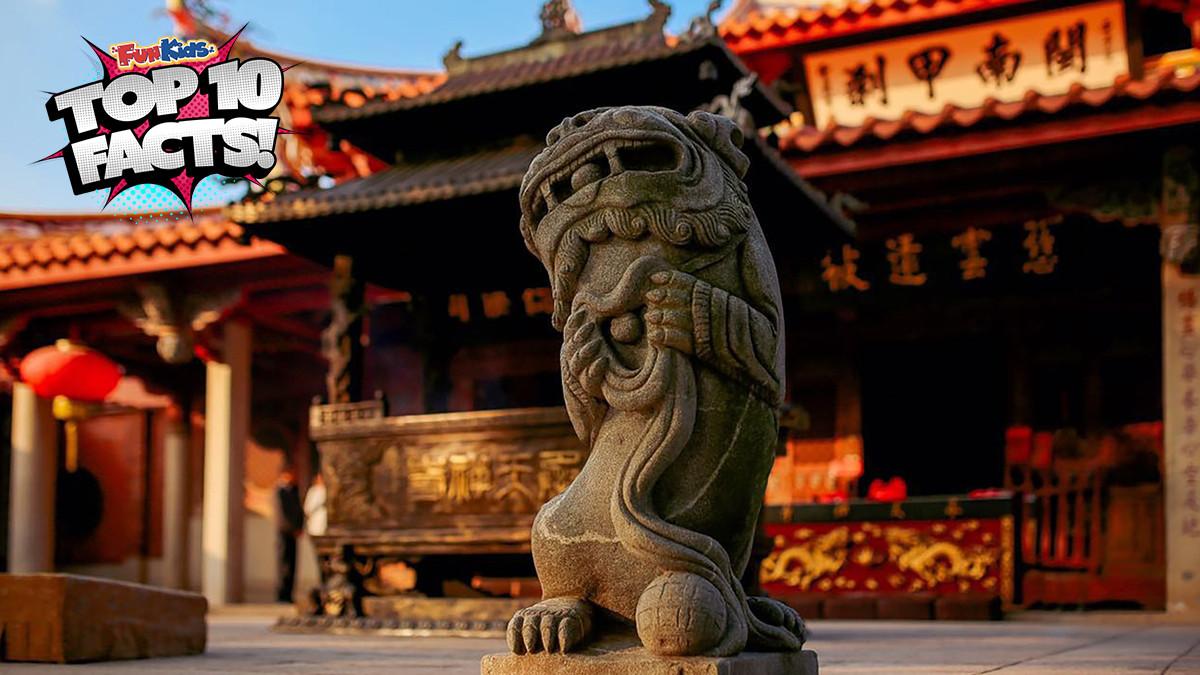The Chinese calendar is more than just a way to track time, it’s a fascinating blend of astronomy, culture, and tradition that has shaped the way people celebrate and live their lives for thousands of years. Created over 4,000 years ago, this lunar-solar calendar reflects the movement of both the moon and the sun, making it incredibly unique compared to the Gregorian calendar most of us use today. From the colourful celebrations of Chinese New Year to the intriguing zodiac animals and elements, the Chinese calendar is packed with stories, science and symbolism. Dive into this amazing calendar and uncover how it connects the past to the present while guiding festivals, farming and even everyday decisions!
1. It’s over 4,000 years old!
The Chinese calendar is one of the oldest in the world, believed to have started over 4,000 years ago during the reign of Emperor Huangdi, also called the Yellow Emperor.
This was long before the Gregorian calendar we use today was even imagined!
It’s amazing to think that people were already tracking time in such a complex way back then.
Embed from Getty Images2. It’s a lunar-solar calendar
Unlike the calendar we use, which is based purely on the sun (a solar calendar), the Chinese calendar is a lunar-solar calendar.
This means it uses both the moon’s phases and the sun’s position in the sky to calculate dates.
The months are based on the moon’s cycles, while the year aligns with the sun’s position.
Embed from Getty Images3. New Year isn’t 1st January
Chinese New Year falls on a different date each year, usually between 21st January and 20th February.
This is because it begins with the first new moon of the year, not a fixed date.
It’s the most important celebration in the Chinese calendar and lasts up to 15 days!
4. The 12 zodiac animals are a big deal!
Each year in the Chinese calendar is linked to one of 12 zodiac animals: rat, ox, tiger, rabbit, dragon, snake, horse, goat, monkey, rooster, dog and pig.
These animals represent different traits. For example, if you’re born in the Year of the Dragon, you might be thought of as confident and powerful.
The zodiac repeats every 12 years.
Embed from Getty Images
5. It’s not just about animals… there are elements too!
The calendar also uses five elements: Wood, Fire, Earth, Metal, and Water.
These elements combine with the zodiac animals to create a 60-year cycle.
For example, you could be a Water Rabbit or a Fire Horse, and these combinations are believed to affect your personality and luck!
Embed from Getty Images6. There are leap months rather than leap days
The Chinese calendar adds a whole extra leap month approximately every three years to stay in sync with the solar year.
This is because the lunar year (based on the moon) is shorter than the solar year by about 11 days.
Instead of just adding a single day like in the Gregorian calendar, they add a full month to make up the difference!
7. Farmers used it for crops
The Chinese calendar wasn’t just about celebrations; it was also a tool for farming.
It’s called the agricultural calendar because it helped farmers know the best times to plant and harvest crops.
Each month corresponds to seasonal changes that are crucial for growing food.
Embed from Getty Images
8. It’s full of lucky and unlucky days
In Chinese culture, certain days on the calendar are considered more lucky than others.
People still use the Chinese calendar to pick the best days for weddings, starting businesses or even moving into a new house.
These “lucky days” are based on ancient traditions and astrology.
Embed from Getty Images9. The Lantern Festival ends the New Year
Chinese New Year celebrations last for 15 days, and they end with the colourful Lantern Festival.
People hang glowing lanterns, solve riddles written on them, and watch dragon and lion dances.
It’s a magical way to mark the end of the biggest holiday of the year.
Embed from Getty Images10. It’s still important today
Even though most people in China and around the world now use the Gregorian calendar, the Chinese calendar is still widely used for traditional holidays, festivals and astrology.
It’s a connection to the past that remains part of modern life.
The Chinese calendar is a fascinating mix of science, tradition, and culture that shows how ancient people observed the world around them.
Add a commentTop 10 Facts
From the Tudors to rocks to fish, we have all the best facts right here!
More From Top 10 Facts



